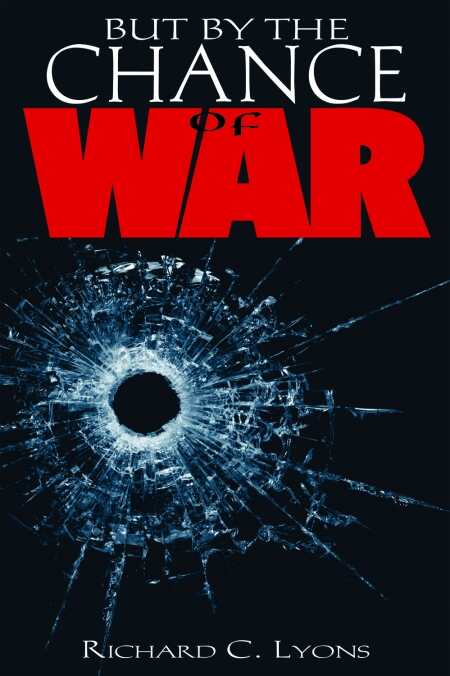But by the Chance of War
- 2012 INDIES Winner
- Bronze, War & Military (Adult Fiction)
Heroic couplet-form dialogue brings an epic feel to this survey of war and human nature’s destiny.
No one is more aware of the paradoxes inherent in war than its principals. In this epic survey, Richard Lyons takes to battlefields and staging areas to dramatize the tragic ironies and conflicting truths in human warfare.
But by the Chance of War is a stirring tetralogy of separate but thematically linked parts. The first three of these works are based on pivotal historical events: the invasion of the Gupta (India) Empire by the Huns (515 CE), the French and Indian surrender of Fort Niagara to the British (1759), and a German advance on British troops near the city of Amiens, France (1918). Part four is purely fictional, taking place in Jerusalem at a time very much like the present.
The dialogue is in heroic couplet, a format that, Lyons explains in his foreword, attempts “the reconciliation of two physically opposed lines.” Though the poetry may seem daunting to some readers, it lends gravitas to the dialogue and smacks of classic epic works.
Each part, a play in itself, features some new advance in the technology of war, but the human element is oddly consistent. Near the end of the final cataclysmic scene in part four, nuclear warfare having decimated half the planet, a Franciscan Brother cries, “Twas for us the beast in Nature to subdue, / But it’s the beast in us that subdues the world!” The lament is nearly an echo of the observation made by a Hindu priest to his Hun captors in part one: “Who would conquer all things must conquer one thing / Those desires of his soul which are limiting!”
Lyons also looks at the circumstances of war—that which is fought for and that which is defended. The Huns are “wonders of an hour” who are disrupting centuries of peace to invade the Gupta Empire. They fling “spears and stones, fire and arrows” to destroy a diverse, sophisticated culture. In Europe many centuries later, an assassination has set ten million men, most of them bound by alliances designed to keep the peace, to the trenches of World War I. The heroic sacrifice of life and limb is contrasted to betrayals of trust by nations as well as individuals. And the rage to avenge a wrong often results in the occurrence of more wrongs.
At times, Lyons’s warriors argue the folly of ignoring the “gathering evil” that is the enemy. At other times, characters see that “we are all prisoners here, of our ill ambition!” His men are honorable and principled as often as they reek of excessive desire and pride. During the French and Indian Wars, the British bought newly invented howitzers from a Frenchman. Many British officers deplore the moral lapse of the traitor even though they will benefit from it; one general considers not using a cannon bought from the enemy. His argument: “This victory ought not to be merely over foes / But a victory over our lesser selves.”
Richard Lyons’s work is a profound examination of the phenomenon of war. It is also a proposal that men should not despair in the struggle over their “lesser selves.”
Reviewed by
Joe Taylor
Disclosure: This article is not an endorsement, but a review. The publisher of this book provided free copies of the book and paid a small fee to have their book reviewed by a professional reviewer. Foreword Reviews and Clarion Reviews make no guarantee that the publisher will receive a positive review. Foreword Magazine, Inc. is disclosing this in accordance with the Federal Trade Commission’s 16 CFR, Part 255.

